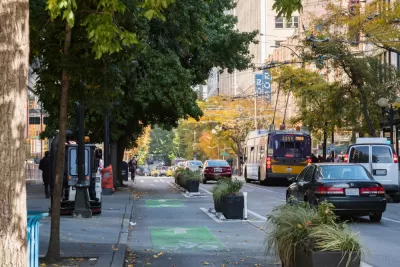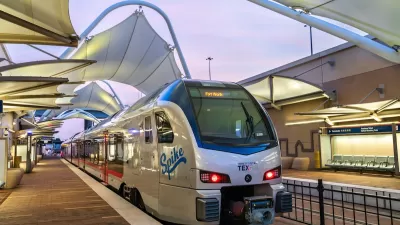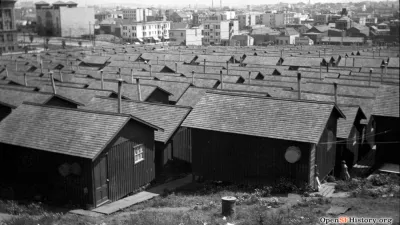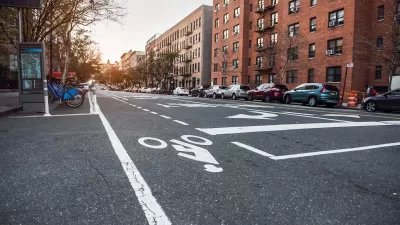The President’s proposed budget could cut key resources for active transportation, public transit, and road safety programs.

In an explainer for Transportation for America, Benito Pérez outlines the potential impacts on transportation of the President’s proposed Fiscal Year 26 ‘Skinny Budget.’
While, at first glance, the budget appears to have little impact on transportation, Pérez argues that “a closer look reveals that the budget, if implemented, stands to have outsized funding impacts on programs tied to Complete Streets, active transportation, transit, transportation electrification, and capacity building.”
According to Pérez, although transportation spending remains largely unchanged in the proposal, the lack of reference to certain programs such as Complete Streets and passenger rail “seems to strongly suggest that these programs are not priorities for the administration,” and the framework rescinds over $4 billion in IIJA funds.
Meanwhile, a proposal to eliminate the CDC’s National Center for Chronic Disease Prevention and Health Promotion, which supports Complete Streets programs, would eliminate crucial resources for local governments. “Lastly, the budget framework further targets investments and tax credits that support the growth and transition to electric vehicles, cutting more than $15 billion in IIJA funding from the Department of Energy.”
A more detailed version of the budget must be approved by Congress.
FULL STORY: The “skinny” FY26 budget framework impacts transportation more than meets the eye

Planetizen Federal Action Tracker
A weekly monitor of how Trump’s orders and actions are impacting planners and planning in America.

USGS Water Science Centers Targeted for Closure
If their work is suspended, states could lose a valuable resource for monitoring, understanding, and managing water resources.

Congress Moves to End Reconnecting Communities and Related Grants
The House Transportation and Infrastructure Committee moved to rescind funding for the Neighborhood Equity and Access program, which funds highway removals, freeway caps, transit projects, pedestrian infrastructure, and more.

Portland Council Tentatively Approves Sidewalk Repair Plan
The proposal would address sidewalk needs in Portland’s District 1 and District 4.

Expanding Access to Design Education at Honolulu Community College
Honolulu Community College’s Architecture, Engineering & Construction Technologies program highlights the role of community colleges in preparing nontraditional students for careers in architectural and construction technologies.

Integrating Human Rights Into Energy and Extractive Sector Transitions
Why just transition efforts must move beyond economic considerations by embedding human rights principles into business practices to ensure equitable, transparent, and accountable outcomes for affected communities and workers.
Urban Design for Planners 1: Software Tools
This six-course series explores essential urban design concepts using open source software and equips planners with the tools they need to participate fully in the urban design process.
Planning for Universal Design
Learn the tools for implementing Universal Design in planning regulations.
City of Moorpark
City of Tustin
Tyler Technologies
City of Camden Redevelopment Agency
City of Astoria
Transportation Research & Education Center (TREC) at Portland State University
Regional Transportation Commission of Southern Nevada
Toledo-Lucas County Plan Commissions





























